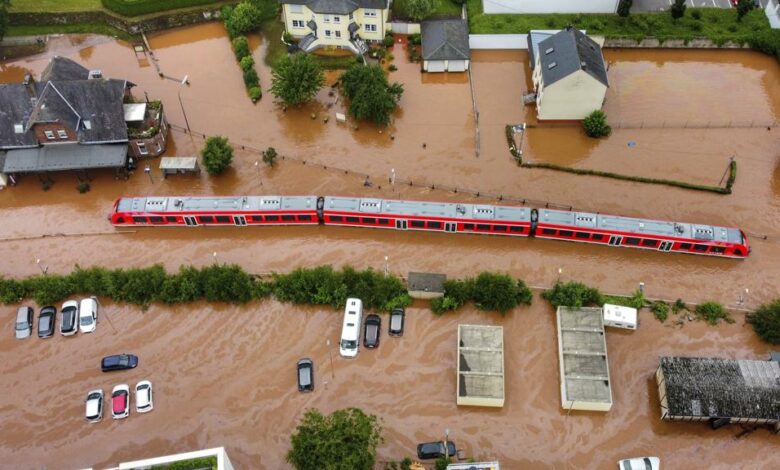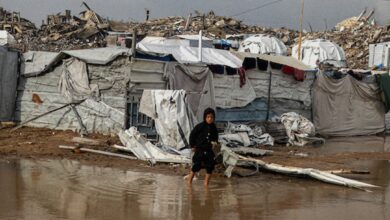
BERLIN (AP) — The death toll from devastating floods across parts of western Germany and Belgium rose above 90 on Friday, as the search continued for hundreds of people still unaccounted for.
Authorities in the German state of Rhineland-Palatinate said 50 people had died there, including at least nine residents of an assisted living facility for people with disabilities.
In neighboring North Rhine-Westphalia state officials put the death toll at 30, but warned that the figure could rise further. Some 1,300 people were still reported missing, though authorities said efforts to contact them could be hampered by disrupted roads and phone connections.
In a provisional tally, the Belgian death toll has risen to 12, with five people still missing, local authorities and media report early Friday.
The flash floods this week followed days of heavy rainfall which turned streams and streets into raging torrents that swept away cars and caused houses to collapse across the region.
Chancellor Angela Merkel and US President Joe Biden expressed their sorrow over the loss of life during a news conference at the White House late Thursday.
The long-time German leader, who was on a farewell trip to Washington, said she feared that “the full extent of this tragedy will only be seen in the coming days.”
Rescuers were rushing Friday to help people trapped in their homes in the town of Erftstadt, southwest of Cologne, where several houses were at risk of collapse after floodwaters laid bare the foundations.
Three people were rescued from the Wurm River in Heinsberg county late Thursday.
The governor of North Rhine-Westphalia state, Armin Laschet, has called an emergency Cabinet meeting Friday. The 60-year-old’s handling of the flood disaster is widely seen as a test for his ambitions to succeed Merkel as chancellor in Germany’s national election on September 26.
The German army has deployed 900 soldiers to help with the rescue and clear-up efforts.
Thousands of people remain homeless after their houses were destroyed or deemed at-risk by authorities, including several villages around the Steinbach reservoir that experts say could collapse under the weight of the floods.
Across the border in Belgium, most of the drowned were found around Liege, where the rains hit hardest. Skies were largely overcast in eastern Belgium, with hopes rising that the worst of the calamity was over.




